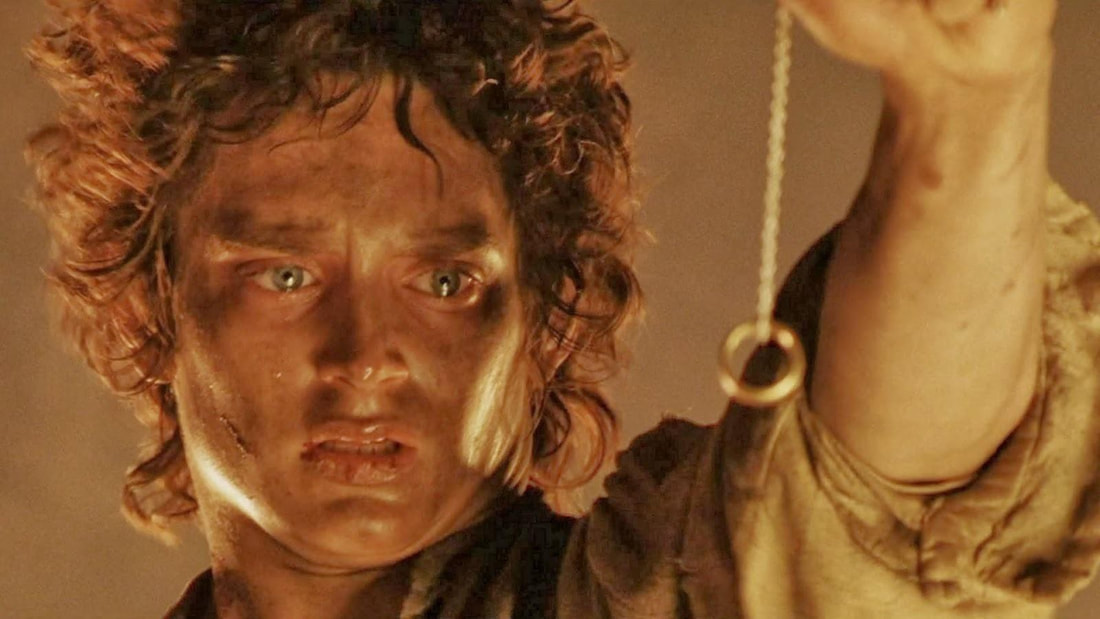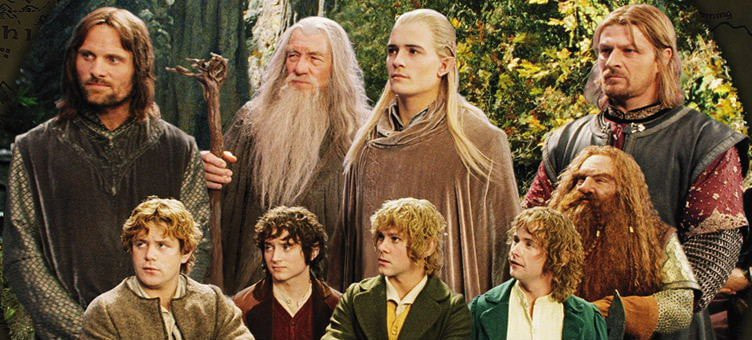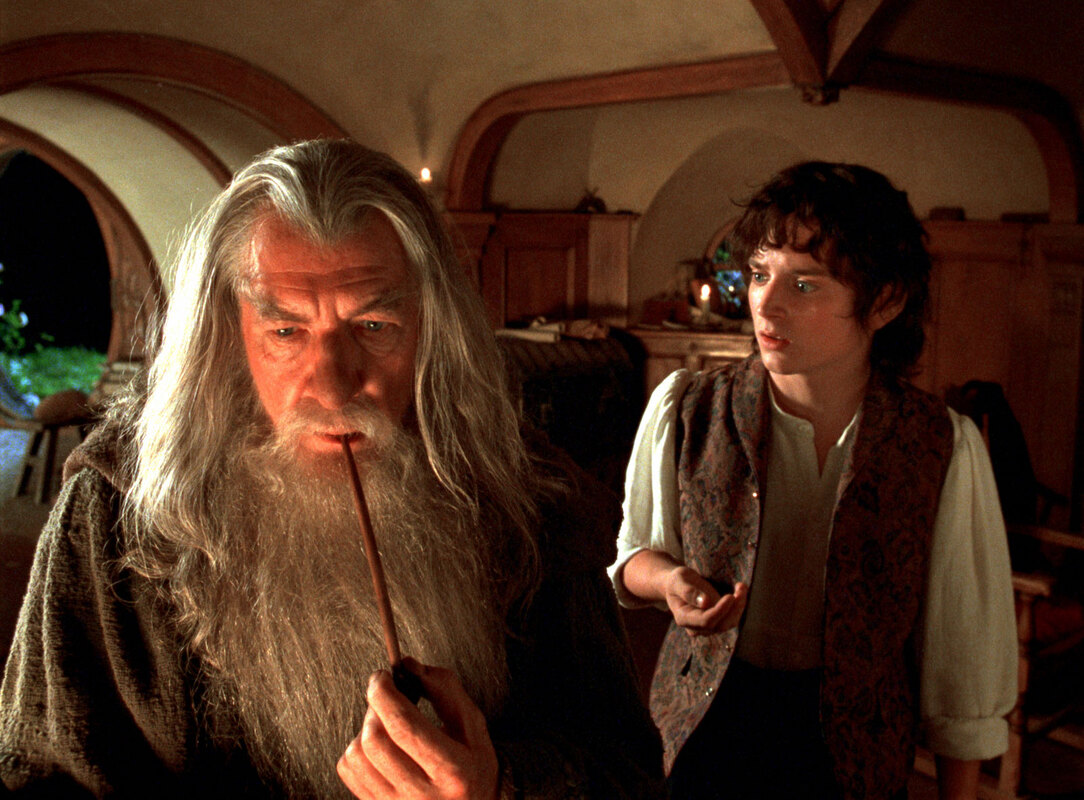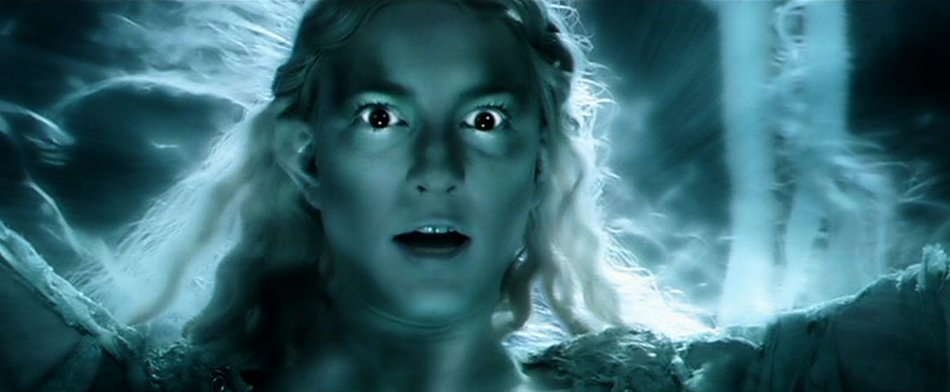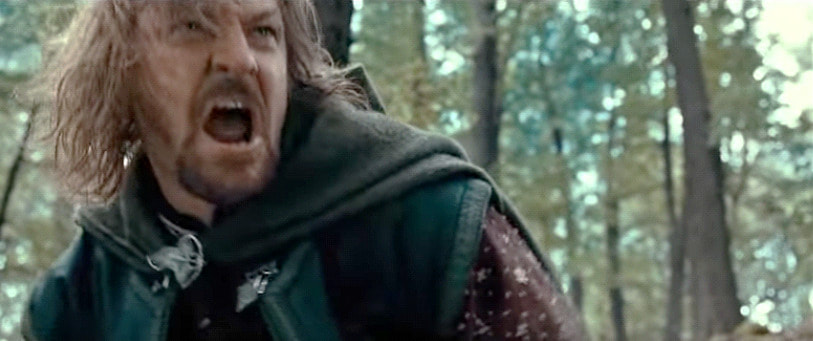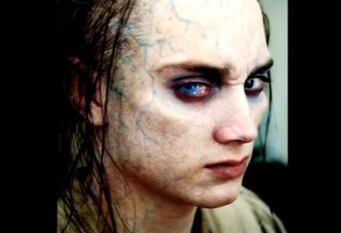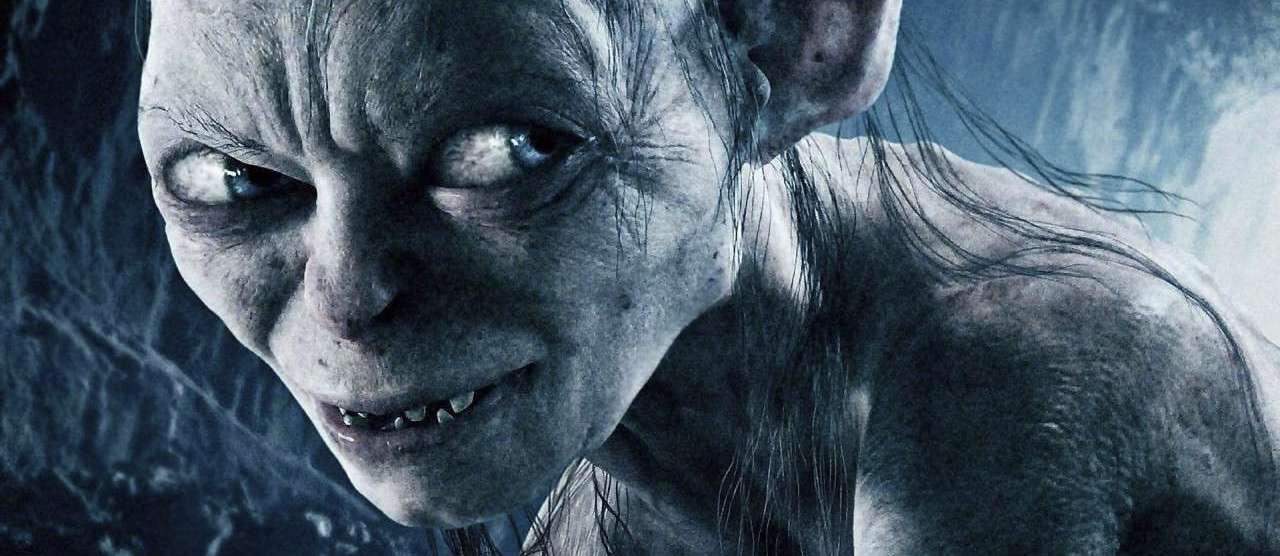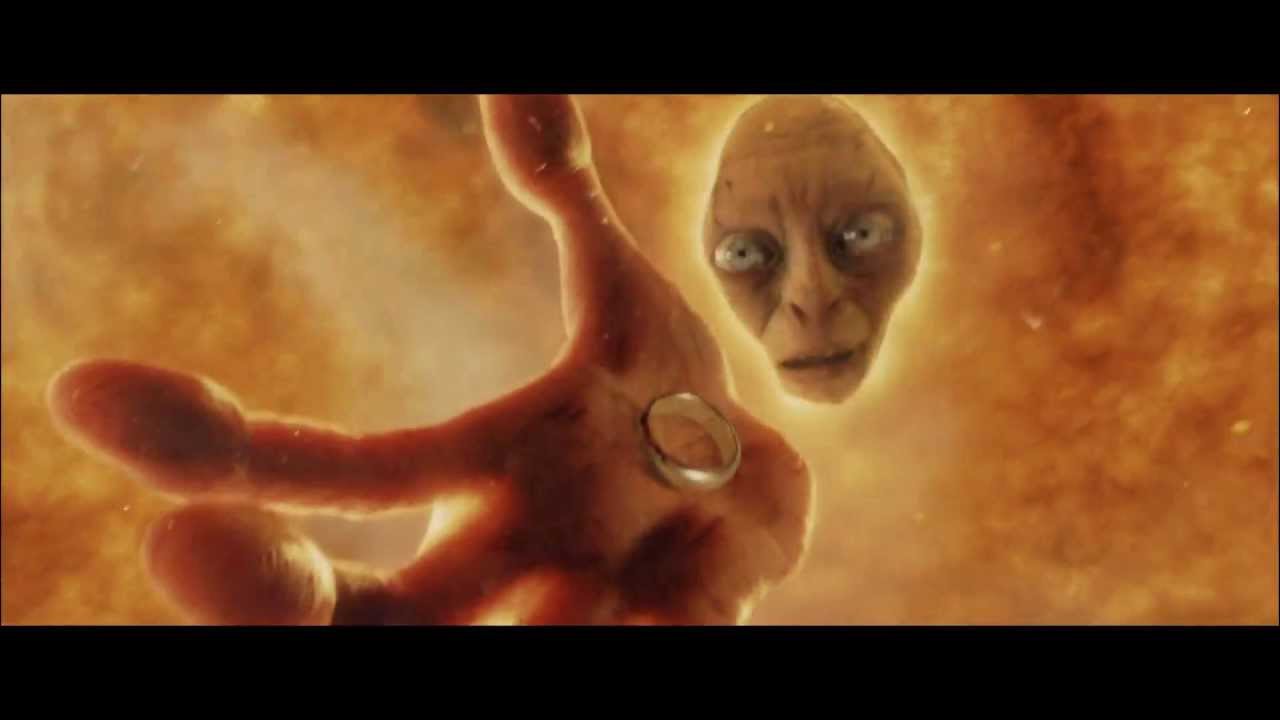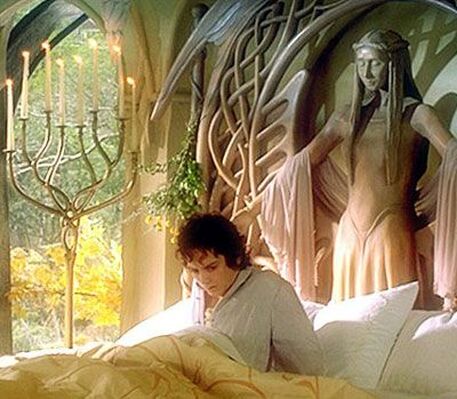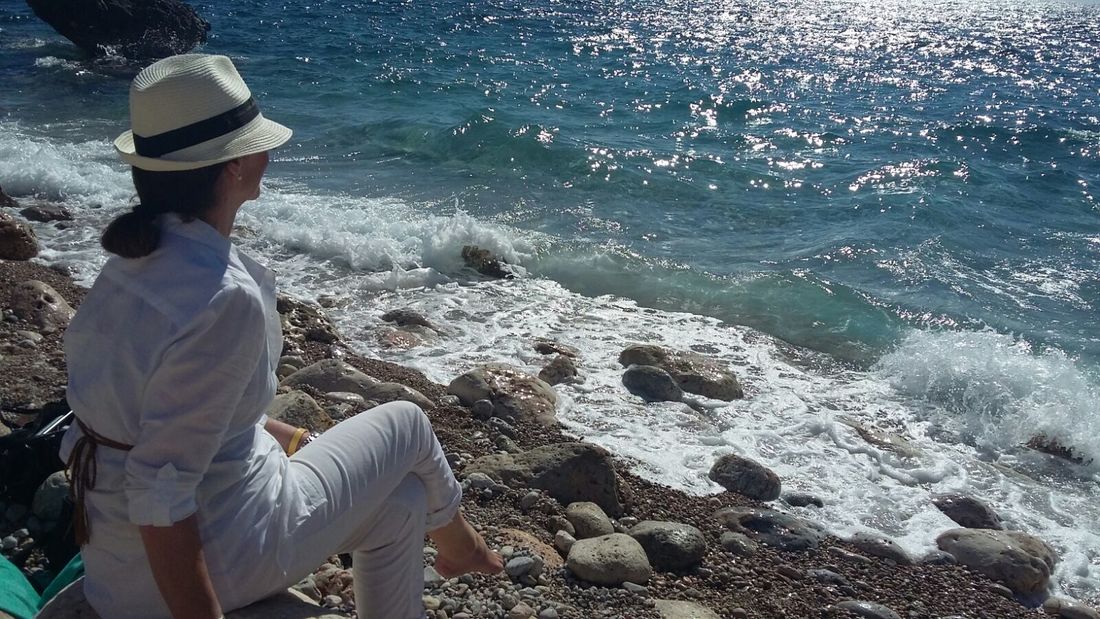One Ring to rule them all, One Ring to find them,
One Ring to bring them all and in the darkness bind them.
J.R.R Tolkien: Lord of the Rings
“You will meet many foes, some open, and some disguised; and you may find friends along your way when you least look for it.”
Elrond to the Fellowship at Rivendell
“You will meet many foes, some open, and some disguised; and you may find friends along your way when you least look for it.”
Elrond to the Fellowship at Rivendell
Like the Ring itself, that for the most part appears completely benign - used
for years by Bilbo in the Hobbit as a party trick, radically changes its nature at the start of Lord of the Rings. Little sign until then of its sinister power - although the hints were always there, especially in the character of Gollum of course. Yet in the Lord of the Rings we see straightaway what we are dealing with, for when Gandalf throws it on the fire at Bag End - the eerily mysterious inscription - is immediately visible - and the party trinket is unmasked as the deadliest of foes.
So there is a moment of severe temptation. A moment of imagining a different outcome - where she might be the one to wield the mighty power and thus remain in Middle Earth.
In place of a Dark Lord you will set up a Queen.
….and there issued a great light that illumined her alone and left all else dark. She stood before Frodo seeming now tall beyond measurement, and beautiful beyond enduring, terrible and worshipful. Then the light faded, and suddenly she laughed again, and lo! she was shrunken: a slender elf-woman, clad in simple white, whose gentle voice was soft and sad.
'I pass the test', she said.
'I will diminish, and go into the West, and remain Galadriel.'
And Frodo knows for sure then that he must go alone.
It was in within such caves that that Bilbo first found the Ring, momentarily mislaid by Gollum, who resided there in the shadows. He too had once been a Hobbit & in his character Tolkien shows us most starkly, the trajectory of those souls who kid themselves they can wield the Ring.
As soon as he sees it, like all the rest, he is lost - & like the orcs who had long ago been Elves,little by little lost himself - his warmth & finally his soul. In the end Sméagol is hardly a Hobbit at all - but more as we might imagine a heroin or crack addict might be or an alcoholic in the last days of addition. He has become Gollum and as such is almost beyond the reach of redemption.
Interestingly, Peter Jackson prepared a scene, not included in the final edit of Lord of the Rings film- where we would have been shown what Frodo might have become had he fallen further into the grip of & allure of the Ring.
There is a fine line isn’t there between confidence & self-actualisation on the one hand & inflation or hubris, as the Greeks might say on the other. It is an ever-present danger – this balancing act between reaching our potential as the heroes & heroines of our own lives - & letting our successes go to our heads. Those of us that stand too far back from the line as it were, are what we might call weak. Then others will surely step over us filling the vacuum, claiming space & power that could or should have been ours.
Yet if we step across that line - even if only fractionally - we are likewise lost – but in an entirely different way. The fallen kings of the Two Towers exemplify this dynamic perfectly - one too weak, the other over bold. They are worthy of study in their own right & we will touch upon their tales in a later chapter - but for now it is enough to note that the shape of our world's reflect our choices - good & bad & on a moment to moment basis.
Sam then comes forth to the brink to claim his friend & together they flee the crumbling mountain.
Yet though Frodo faltered at the very last - still the quest is achieved & by & by - the Eagles (whom we have met before) & who are always somehow mysteriously in the wings of Tolkien's tales - swoop down with Gandalf to rescue & carry them back to Rivendell.
Why does Tolkien write it in this way?
Why does the hero fail - & yet succeed - but differently than we might expect? And what is it in Tolkien's philosophy that creates such an ending - and is it ultimately satisfactory?
That we are all flawed is a given - heroes & heroines maybe - yet mortal too and yet it is the very fact of our mortality that renders our heroism - in so far as we may achieve it - given the severity of temptation that only a God like Christ might endure & come through - all the more miraculous! And this is what Tolkien celebrates. For let us be in no doubt - when Frodo reaches the edge of the Cracks of Doom, he is as close as any mortal can be to the power of darkness & all that this implies - & mortal folk can only go so far. It is what distinguishes them from gods.
Tolkien's ending too allows Gollum to live out his obsession to the end & in so doing show us all where such additions lead - as well as adding an unexpected twist in allowing this saddest & most tragic of creatures to ultimately destroy the Ring & set them all free.
Yet without Frodo & Sam & all the other flawed creatures who risked life & limb to bring about the destruction - the ending could never have been achieved. Like them - we may fail at the last. We may not achieve our final goal & yet this in itself does not undue our legacy, it does not diminish us utterly. No, it only reminds us we are human - & returns us to humility - & this in part - is the point of the journey!
Much love
Anne Maria
x x x
www.annemariaclarke.net/blog
https://twitter.com/MariaClarke
Tolkien's Legendarium Transpersonal Weekend @ Rock Bank UK has been postponed
Provisional Bookings
www.rockbank.co.uk
[email protected]
